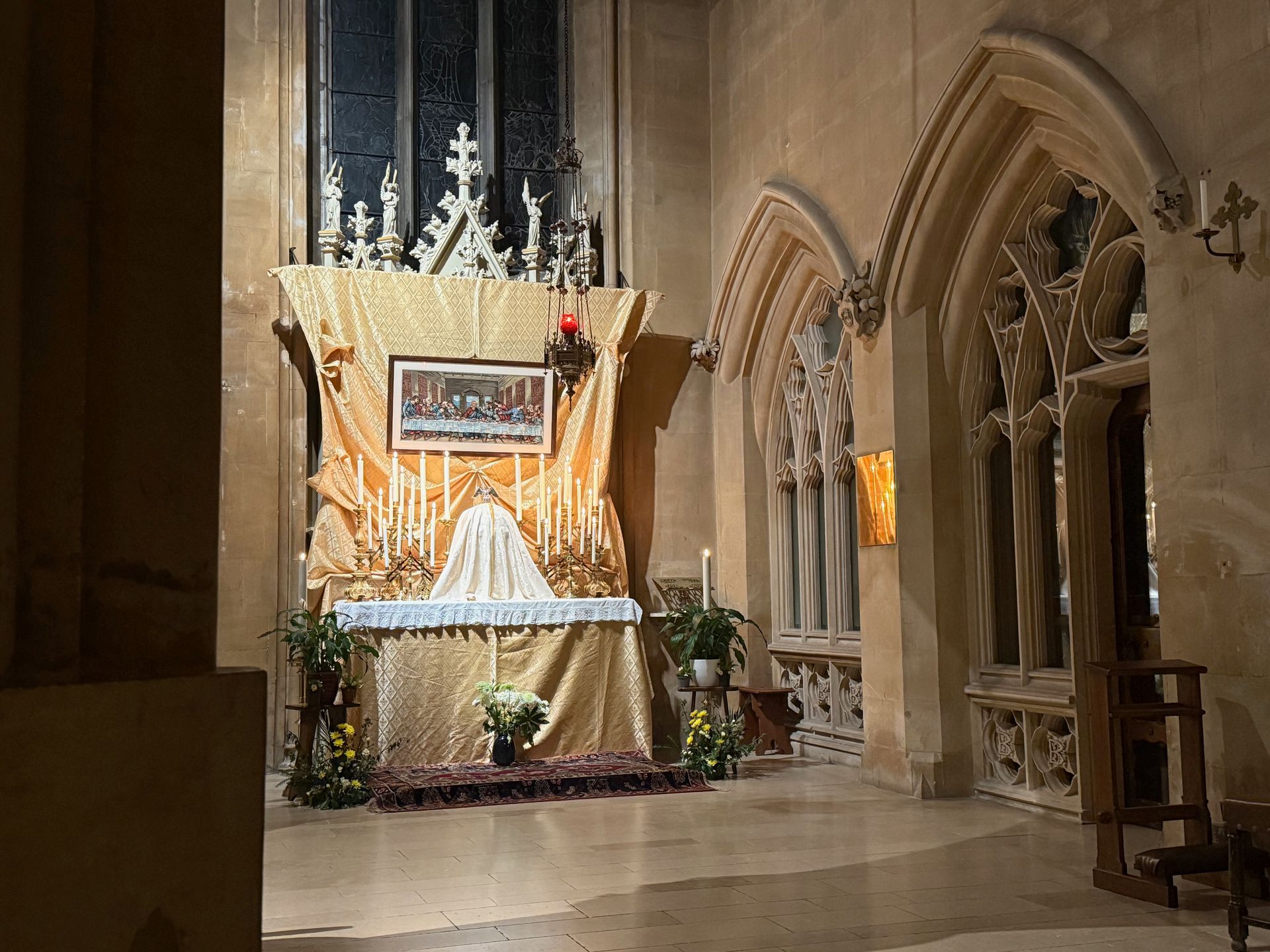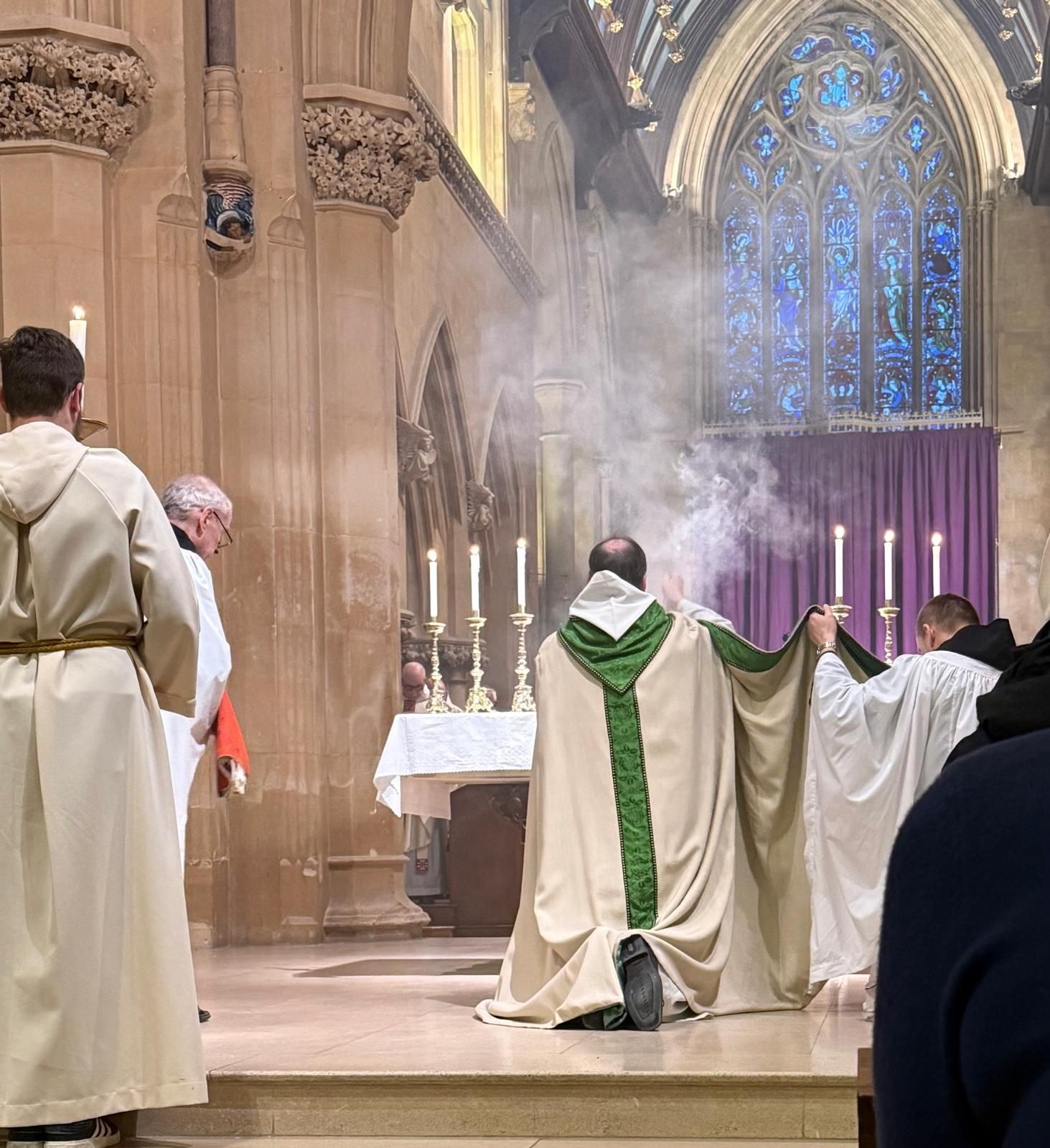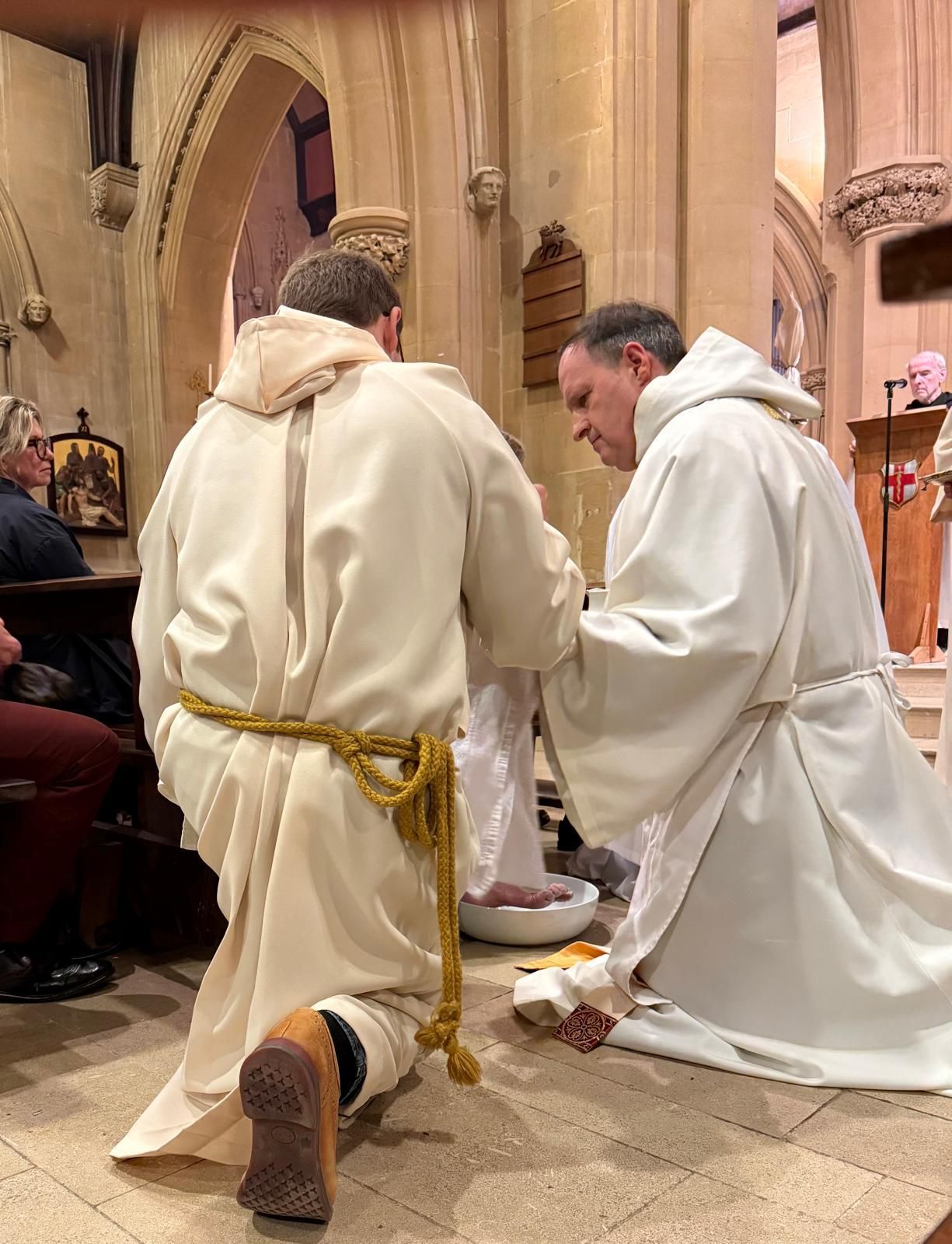Maundy Thursday
Homily by Abbot Brendan

If you knew that tonight would be your last night on earth, how would you mark it? What would you say, and what would you do?
Jesus does two things and they both have to do with saying that his love is real, his love is total, and his love is not going end. He loves us “to the end.”
First, he gives us the Eucharist. Our heavenly Manna. Our food for the journey. He knew we wouldn’t be satisfied just thinking about him. We would want to be with him. So he leaves himself with us in a new way. This is my body. Here am I present with you.
He takes bread and wine and says: “Do this in memory of me.” But the Greek word is anamnesis, which doesn’t just mean memory—it means making present. The Second Vatican Council helped us renew our understanding of what we are doing these days by recovering the Jewish understanding of memory. They understood the Passover as a making present of God’s saving action. It underlies the whole of sacramental theology.
That’s what happens at Mass. This is no pageant. We are not spectators of a past event—we are drawn into a mystery. Christ’s Paschal Mystery – in other the words his Passion, Death, Resurrection and Ascension. The Passover of God, from death to life. He is present in the power of his Passover, his Paschal Mystery.
Our liturgy this Triduum is not a passion play, and we are no mere spectators. Christ is present, his saving love is present. And as St Thomas Aquinas said, at every Mass “The memory of his Passion is told again, grace fills the heart, and there is given to us an assurance of the glory that will be ours.” Past and present and future coalesce.
“Were You There when they crucified my Lord?” asks the spiritual. Yes—but rather we are there, not in history, but in mystery. Or rather Christ is here, present in his power. His salvation is made present as we celebrate.
As the Franciscan priest Alban McCoy puts beautifully: “We’re brought into his presence not as spectators, but participants: we’re with him at table, with him on the Cross, and with him as he rises from the tomb. That’s why, by participating in the Mass, we’re consciously committing ourselves to the unity expressed in this banquet, to the love proven on the Cross, and to the glory manifested in the resurrection. But, above all else, we’re consciously committing ourselves to making real in our own lives the selfless act of love and generosity that is at the heart of all the events we celebrate over the next three days. We’re committing ourselves to nothing less than turning the world and its ways upside down.”
Which brings me to the second thing that Jesus does on that night before he died to say that his love is real, his love is total, and his love is not going end. He gives us a new commandment. He says “love one another, as I have loved you” and in washing the feet of his disciples he is indeed ‘turning the world upside down.”
The old Passover was easy to keep, you fulfilled the commandments, you kept the law. But now Jesus challenges us. The love that has no end is to have no end in us. “How wide is your heart?” He asks me and he asks you.
If you want to know how you are doing with God, you look at the person next to you. If you want to see where you are with God, you look at the people in your life, the flesh and blood people he has put alongside you on this earth.
So St John asks us: “How can you say you love the God you do not see if you do not love the brother or sister that you do see?” And rather than giving us an account of the Last Supper in his Gospel he simply gives us the sign of the Lord washing feet.
To love as Christ loves is not easy. It means humbling ourselves. It means forgiving those who hurt us. It means reaching out to the forgotten, the broken, the unloved. It means washing feet—not always literally, but in every act of hidden service, every moment we put another’s good before our own self-satisfaction.
Tonight, Jesus is telling us that his presence is real – we know it in the Eucharist. And his love is real, and we know that we are to share it. That is what he is about, and what we are to be about. Lest we say we cannot do it he comes to us in the Eucharist with his grace and power to love as he loved.
So tonight, as we watch and pray in the silence of Gethsemane, as we receive again the bread of heaven and the call to love, let us ask for the courage to respond. To become people who kneel to serve, who forgive with mercy, who carry Christ’s love into a world so desperately in need.
He invites us to stoop low in love, and when we do we will rise with Him in glory.












